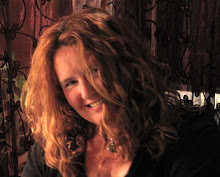With some comments courtesy of Poetry Daily...
So we'll go no more a-roving
by George Gordon Byron, Lord Byron (1788-1824)
So we'll go no more a-roving
So late into the night,
Though the heart be still as loving,
And the moon be still as bright.
For the sword outwears its sheath,
And the soul outwears the breast,
And the heart must pause to breathe,
And love itself have rest.
And the day returns too soon,
Yet we'll go no more a-roving
By the light of the moon.
Mary Jo Bang Comments:
The poem begins with “So . . . ” and ends with “moon.” Imbedded in every word, in every phonic echo, is the central subjectivity that says, “Too bad.” We’ll go no more, that’s the key element. This “no more” is the end of love, of youth, and ultimately the “no more” that comes at the end of life. The poem captures the cold, utterly without irony, punctum (i.e., piercing) of the simple lacerating fact that something, “it,” is over. “It” is at its end. We will go no more. This is the lyric pared down to its most essential: the heart’s longing and the moon’s inconstancy.
Like the wayward poet himself, Byron’s poems often strain against constraint. This one is no exception. The poem proceeds by way of a cascade of opposites: a-roving/loving (seeking versus the sine qua non of love, the steadfast remaining faithful); night/bright; sheath (contraction)/breath (expansion); breast (heaving)/rest (death). The poem ends with a chiasmic reversal of the beginning. The end-rhymes of lines one and three in the first stanza — a-roving/loving — are flipped and become, in the first and third lines of the third and last stanza, loving/a-roving. Each line undergoes some transformation. The moon/bright in line four of the first stanza becomes light/moon in the last line of the last stanza. And so the poem goes forward. Of the many reversals and inversions, all can be read as stand-ins for the reversal of fortune of a possible fractured twosome and/or the retirement of the pack of once-active rovers that makes up the “we.” Even the idea of night as the end and day as the beginning gets reversed. Now day is the ending. When night becomes day, we will go no more. We once did. We won’t any more.
It doesn’t make the poem any less poignant to know that “roving” in Byron’s back-in-the-day day meant sex. We’ll go no more because we are all worn out. That’s sad too. Although that kind of exhaustion is remediable. It seems to me the exhaustion in Byron’s poem is more than sex. Its note of resignation is too cutting. The central lyric dummy who speaks for all of us — that’s the lyric mode — doesn’t only speak for the sexed-up moments but for the ponderous click of a casket lid. And the moment of falling out of love. And the moment of letting go and giving up on the unrequited. We, women and men in all combinations of coupling, or even those who are facing late night post-coital estrangement, we are, all of us, all done-in. The poem may be a cautionary tale as well as a dirge. When we lay down our metaphoric scabbard and put to bed our metaphoric priasmic sword with no hope of rising again, then we truly are no more. We are over.
Regarding the persistence of the poem in popular music and literature, see Wikipedia: http://en.wikipedia.org/wiki
He took the lassie in his arms, and to bed he ran,
O hooly, hooly wi' me, Sir, ye'll waken our goodman!
And we'll go no more a roving
Sae late into the night,
And we'll gang nae mair a roving, boys,
Let the moon shine ne'er sae bright.
And we'll gang nae mair a roving.
![]() About Mary Jo Bang:
About Mary Jo Bang:
Mary Jo Bang is the author of four previous books of poetry, including Louise in Love and The Eye Like a Strange Balloon. She’s been the recipient of numerous awards including a fellowship from the Guggenheim Foundation and a Hodder Award from Princeton University. She is on the permanent faculty at Washington
University where she is an Associate Professor of English and Director of the Creative Writing Program.




No comments:
Post a Comment